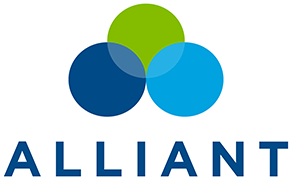Illinois Story Archive
IDFPR Announces Landmark Legislation to Launch Illinois Consumer Financial Protection into the Digital Age

April 14, 2023 — The Illinois Department of Financial and Professional Regulation (“IDFPR”) announced today the Consumer Financial Protection and Innovation Package, a pair of legislative initiatives designed to protect Illinois residents from financial fraud and abuse and establish regulatory oversight of cryptocurrencies and the broader digital asset marketplace.
The Fintech-Digital Asset Bill (HB 3479/SB 2233) establishes regulations for digital asset businesses and modernizes regulations for money transmission in Illinois, while the Consumer Financial Protection Bill (HB 3483/SB 2232) empowers IDFPR to enforce those regulations and strengthens its authority and resources for existing consumer financial protections. Both measures are sponsored by Representative Mark Walker in the House and Senator Laura Ellman in the Senate. Read more
Illinois’ Biometric Privacy Law Provides Blueprint As States Seek To Curb Data Collection
An estimated 17 pieces of privacy legislation backed by both Democrats and Republicans are pending across the country.
Courtesy of Tonya Riley, Cyberscoop
Mar. 3, 2023 — A dozen states have introduced privacy legislation this year that would rein in companies’ unchecked ability to collect and sell consumers’ biometric data such as fingerprints and images of their faces. The bills are part of a wave of state-level privacy legislation that includes more than a dozen children’s online privacy bills as well as a growing number of bills modeled after the comprehensive privacy legislation that Congress introduced last year. Read more
Banking on Sisterhood: A Black Sorority Launches a Credit Union
Courtesy of Frank Gargano, American Banker

Photo courtesy of American Banker
For Members Only Federal Credit Union in Chicago debuted this month as one of the few credit unions sponsored by a fraternity or sorority. Its goal is to foster the development of generational wealth for the Black women connected through Alpha Kappa Alpha.
The sorority itself was founded in January 1908 on the campus of Howard University, a historically Black institution in Washington D.C. Today, AKA has more than 335,000 African American female initiates in 12 counties and boasts notable alumni such as Maya Angelou, Katherine Goble Johnson and Vice President Kamala Harris.
Emma Hayes, who has been an active member of AKA for more than 25 years and is currently chief culture officer for the $51 billion-asset State Employees’ Credit Union in Raleigh, North Carolina, explained how the sorority was inspired by its lineage to launch its own financial institution. Read more
Illinois Community Reinvestment Act Proposed Rules Published
Division of Banking Also Announces Supervisor to Oversee Implementation of Historic Consumer Legislation Over State-Chartered Banks and Non-Depository Mortgage Lenders
Dec. 23, 2022 — The Illinois Department of Financial and Professional Regulation announced today that its proposed rules implementing the Illinois Community Reinvestment Act (“Illinois CRA”) were published by the Illinois Secretary of State. IDFPR invites interested parties to review and comment on these proposed rules through January 30, 2023. This publication marks a crucial step towards implementing the groundbreaking law. The Illinois CRA aims to incentivize more safe lending into low- and moderate-income communities by Illinois financial institutions.
Signed into law in March of 2021, the Illinois CRA made Illinois the first state in the Midwest to enact a state CRA and only the second state in the nation to include non-depository mortgage lenders. The Illinois CRA sets standards for IDFPR to examine low- and moderate-income lending by state-chartered banks, credit unions, and non-depository mortgage lenders. Read More
Illinois Appellate Court Weighs in on Biometric Data Policies
Dec. 16, 2022 — An Illinois state appellate court’s recent ruling will impact how companies consider compliance with Illinois’ Biometric Information Privacy Act (BIPA). That court ruled companies must have a BIPA-compliant written retention-and-destruction policy in place before collecting and possessing biometric data. The decision makes clear that mere possession of biometric data triggers the duty to develop the necessary written BIPA policy. In relevant part, under BIPA’s section 15(a), companies must establish a written, publicly-available policy that governs their retention and destruction of biometric data. Read more
Gov. Pritzker Appoints Erin A. Johnson to Serve as Cannabis Regulation Oversight Officer
Dec. 9, 2022 — Governor JB Pritzker announced Erin A. Johnson will serve as the state’s Cannabis Regulation Oversight Officer. She replaces Danielle Perry, who previously served as the CROO. The state’s Cannabis Regulation Oversight Office is a part of the Illinois Department of Financial and Professional Regulation and is responsible for coordinating with numerous state agencies to direct the regulation and taxation of Illinois’ cannabis industry. This work is done to ensure Illinois’ social equity goals are met through expungements, community reinvestment, and the diversification of the state’s cannabis industry. Click here to read more.
October 10, 2022, is CU Kind Day
 On October 10, 2022, credit unions across the country will have the opportunity to showcase the credit union difference by donating, volunteering and/or showcasing the motto “people helping people.”
On October 10, 2022, credit unions across the country will have the opportunity to showcase the credit union difference by donating, volunteering and/or showcasing the motto “people helping people.”
The Illinois Credit Union League founded CU Kind Day in 2019. Since, the Minnesota Credit Union Network, the Cornerstone League, and the League of Southeastern Credit Unions have taken part in their own statewide day of kindness. In celebration of the third annual CU Kind Day, the Illinois Credit Union League (ICUL) has called upon all Illinois credit unions to roll up their sleeves and give back to the communities they serve. By participating in CU Kind Day, we aim to show our communities how “people helping people” is at the heart of the credit union movement.
ICUL launched CU Kind Day in 2019 with the purpose of spreading kindness and generating awareness for the good work done by credit unions in their communities. Over the past three years, more than $225,000 has been donated to over 600 charitable organizations on CU Kind Day. This demonstration of cooperation and outreach has shown Illinois what the credit union difference looks like and how credit unions put their members and communities first.
 “I’m so proud to work in an industry that focuses on people over profits”, said ICUL President Tom Kane. “That mindset does more than just describe the priorities of a credit union, it is the keystone that credit unions are built around. I look at the CU Kind Day initiative as a manifestation of that mindset; it is an opportunity to show our communities how important they are to credit unions, and to the movement as a whole.”
“I’m so proud to work in an industry that focuses on people over profits”, said ICUL President Tom Kane. “That mindset does more than just describe the priorities of a credit union, it is the keystone that credit unions are built around. I look at the CU Kind Day initiative as a manifestation of that mindset; it is an opportunity to show our communities how important they are to credit unions, and to the movement as a whole.”
Learn more about CU Kind day and download/view additional resources for your organization here.
 Illinois DFPR’s Division of Financial Institutions Receives 2022 NASCUS Reaccreditation
Illinois DFPR’s Division of Financial Institutions Receives 2022 NASCUS Reaccreditation
June 7, 2022 — The National Association of State Credit Union Supervisors (NASCUS) is proud to announce that the Illinois Department of Financial and Professional Regulation’s (IDFPR) Division of Financial Institutions has earned Reaccreditation following a series of in-depth reviews and assessments by a panel of veteran state supervisors.
“Illinois is proud to be recognized as having the greatest number of state-chartered credit unions in the nation that range in size from under $100,000 to over $15 billion. Keeping an eye on this vibrant segment of the financial services industry that serves millions of credit union members is no small task,” said Francisco Menchaca, Director of the Division of Financial Institutions. “It is an honor to receive this designation and be recognized by the prestigious National Association of State Credit Union Supervisors. I want to recognize all of the exceptional team of IDFPR and the Credit Union Section Examiners for their excellent achievement.”
“This National Association of State Credit Union Supervisors reaccreditation is a testament to the talented, knowledgeable, and hardworking team at the Division of Financial Institutions,” said Mario Treto, Jr., Secretary of the Illinois Department of Financial and Professional Regulation. “I am proud of this reaccreditation that is yet another example of our agency’s commitment to protecting consumers in Illinois and fulfilling IDFPR’s mission to ensure the safety and soundness of financial institutions.”
NASCUS Accreditation is a robust process that includes disciplined self-evaluation and ongoing monitoring, administered by the NASCUS Performance Standards Committee (PSC), a group of senior regulators from accredited state agencies.
“This peer-reviewed program recognizes achievements of state credit union regulators to effectively carry out regulatory and supervisory programs in their operations and utilization of resources,” commented NASCUS President and CEO Brian Knight. “Achieving NASCUS Accreditation reflects the exceptional capabilities of state regulatory agencies and their ability to meet the highest level of regulatory proficiency and industry standards. Furthermore, the Accreditation review process can identify opportunities for statutory, regulatory, or supervisory changes to further enhance the agency and the state’s charter.”
Alliant CU Reports It Sold $139M in Loan Participations in First 2 Months of 2022
Courtesy of CUToday
 March 16, 2022 — Alliant Credit Union is reporting its loan trading desk has started 2022 with $139.6 million of loan participations sold in the first two months of 2022, primarily consisting of recreational vehicle (RV) loans.
March 16, 2022 — Alliant Credit Union is reporting its loan trading desk has started 2022 with $139.6 million of loan participations sold in the first two months of 2022, primarily consisting of recreational vehicle (RV) loans.
Alliant began financing RVs for members in 2008, and in 2013 expanded into indirect channels focusing on larger franchise dealerships. Alliant said its current RV loan portfolio is roughly $1.5 billion.
“The rising popularity of RV travel represents a growing opportunity for credit unions, encouraging them to be more comfortable with RV loans as an asset class,” the credit union said. “While RV loans have similarities to auto loans, their risk-adjusted returns tend to outperform auto loans. The nature of the collateral, larger loan sizes, longer loan terms, and more complex underwriting make RV loans an appealing specialty lending sector.”
Alliant added that year-to-date sales have “provided other financial institutions the opportunity to gain access to a high-performing asset class,” while furthering its lending objectives.
Judge Rules Letter of Intent for Credit Union Merger Is Not a Binding Contract
Ruling does not end the legal dispute between Vibrant CU and Infinity FCU
Courtesy of Peter Strozniak, CU Times
 March 21, 2022 — An Illinois federal judge ruled that a letter of intent for a proposed credit union merger is not a binding contract, but that did not end the legal dispute between the $1 billion Vibrant Credit Union in Moline, Ill., and the $336 million Infinity Federal Credit Union in Westbrook, Maine.
March 21, 2022 — An Illinois federal judge ruled that a letter of intent for a proposed credit union merger is not a binding contract, but that did not end the legal dispute between the $1 billion Vibrant Credit Union in Moline, Ill., and the $336 million Infinity Federal Credit Union in Westbrook, Maine.
After the credit unions signed the letter of intent in 2018, they began negotiating a definitive agreement that Vibrant said would encompass certain terms, including a “cost clause” in which Vibrant agreed to cover the costs and expenses of the merger unless it did not take place or was cancelled. But the credit unions agreed to share the cost if the merger did not happen.
However, by September 2019, Elizabeth Hayes, Infinity’s president/CEO, wrote a letter to Matt McCombs, president/CEO of Vibrant, to terminate negotiations for a definitive agreement because of Infinity’s inability to reach an agreement with Vibrant on key aspects of the merger.
Vibrant is suing Infinity on a breach of contract claim for failing to pay its prorated share, or $121,247 of the $395,000 in costs of the called-off merger. The expenses were to be split based on the prorated percentage of each credit union’s assets at the end of their second quarter Call Reports in 2019.
Infinity asked Chief U.S. District Court Judge Sara Darrow in Rockland to dismiss the breach of contract claim arguing, in part, that the letter of intent provided that it is not a contract, that the credit unions did not regard the letter of intent as a contract, and that a potential definitive agreement would not have been substantially similar to the letter of intent.
BCU Partners with Cristo Rey High School for Win-Win Corporate Work-Study Program
Courtesy of BCU
 February 10, 2022 — BCU recently partnered with Cristo Rey St. Martin College Prep High School in Waukegan, IL to participate in the school’s Corporate Work-Study Program (CWSP) to help mentor and develop high school students.
February 10, 2022 — BCU recently partnered with Cristo Rey St. Martin College Prep High School in Waukegan, IL to participate in the school’s Corporate Work-Study Program (CWSP) to help mentor and develop high school students.
Through the program, Cristo Rey students in grades 9-12 spend one day per week developing their professional skills by working at a CWSP partner’s site. BCU has a team of four Cristo Rey students working in the Card Services and IT departments, earning a salary that goes directly toward paying their tuition for the private, Jesuit college prep high school.
“The students help us out tremendously,” Jorge Hurtado, Director of Consumer Lending Operations at BCU, said. “They’re quite impressive and bring ideas to the table that provide a whole new perspective that we can’t get anywhere else. That’s invaluable because soon, they and their generation will be our members.”
Hurtado also said he wants his students to work closely with auto loans and titles because they’ll gain knowledge to use in the real world. Additionally, the students are able to connect with employees who joined BCU right out of college to illustrate the variety of opportunities available after graduation.
Stephenie Southard, BCU’s Vice President of Information Technology, shared Hurtado’s sentiment. “The experience has been great for everyone involved and the students are more than willing and do whatever is requested of them,” she said, adding that, “One of the best things about working at BCU is the ability to participate in opportunities like this.”
Read more about this story here.
Financial well-being goes high-tech
Skill-building app provides path for ‘unmembered’ consumers.
December 7, 2021 — Envisant (formerly LSC), a subsidiary of the Illinois Credit Union League, has invested in a fintech startup that offers marginalized consumers a path to financial recovery through mobile banking technology.
Cambio offers a subscription-based mobile account and alternative credit score. Through real-life in-app activities aimed at improving their financial skills, members earn access to cash rewards, credit-building services, and credit from Cambio’s network of credit union lenders.
“There are skill-building apps for stress relief, weight loss, and meditation—virtually any challenge we face in day-to-day life,” says Cambio Founder/CEO Blesson Abraham. “People build communities around them. We believe there’s a community to be built by people who want to lift themselves from within the underserved financial services market to rebuild their financial lives.”
Envisant services the Cambio accounts. “This was an opportunity to improve financial literacy and wellness across the U.S., and at the same time support credit union values,” says Libby Calderone, president/chief operations officer. “We’re happy to enable this great product with our own back-office services.”
#ILoveMyCreditUnion Twitter Campaign Reached Nearly 22-Million People, ICUS Reports
August 4, 2021 — The Illinois Credit Union System is reporting the #ilovemycreditunion Twitter campaign it championed nationally on July 30 reached more than 22-million people.
The campaign, an overview of which was highlighted in CUToday.info here, was designed to “inspire high energy conversation about why people love their credit unions,” according to the ICUS. Tom Kane, president of the ICUS, had the idea for the effort which eventually went national and even international.
“Driven by the cooperative spirit, more than 700 organizations across 48 states and nine countries participated,” the Illinois CU System stated. “These included credit unions, leagues, associations, and industry partners. They started the hashtag #ilovemycreditunion trending across social media platforms, raising awareness about the amazing things credit unions do every day for their members and communities.”
Said Kane, “I’m thrilled by the viral impact of the conversations about credit unions on July 30. Credit unions make a real difference to their members because they put people over profits. I want to thank everyone who joined us to make this effort such a resounding success,” said Kane.
Illinois Department of Financial and Professional Regulation Thanks Deborah Hagan for her Leadership as Secretary
Secretary Hagan retires after serving as IDFPR Secretary and more than 30 years in Illinois Attorney General’s Office
March 31, 2021 — CHICAGO – The Illinois Department of Financial and Professional Regulation wishes to thank Deborah Hagan for her service as IDFPR’s Secretary. Her leadership led to several historic accomplishments for the Department, along with improvements to the professional licensing process in Illinois and more consumer protections for its residents.
Appointed Secretary by Governor Pritzker in February 2019, Hagan came to IDFPR after more than 30 years in the Illinois Attorney General’s Office, where she served as leader of the Consumer Protection Division. Secretary Hagan created the Office of Innovation within IDFPR, which will help encourage innovation in financial development in the banking and fintech sectors here in Illinois. Another addition to IDFPR under Secretary Hagan was the military liaison position, an individual who helps military service members and their spouses obtain any professional licensure needed before transferring to Illinois. Hagan also increased leadership opportunities for women and minorities, resulting in one of the most diverse executive staffs among Illinois agencies.
Ransomware Attacks Extorting Sizeable Ransoms Continue as Predominant Cyber Issue
March 2021 — Ransomware developers and affiliates have been telling victims they must pay the ransom or stolen data and internal company secrets will be publicly released. Unfortunately, not everyone has been a believer. Six and seven-figure demands have become routine among ransomware attacks with the average ransom payment in quarter two of 2020 reaching $178,254, a 60% leap from the $111,605 average in quarter one according to the Coveware Quarterly Ransomware Report.
“Credit unions need to be looking out for ransomware techniques. These cyber-attacks have no boundaries and are truly a global issue,” reports Carlos Molina, Senior Risk Consultant at CUNA Mutual Group. “Ransomware has grown in frequency and severity significantly. The average ransom payments have climbed exponentially in the last few years.”
Ransomware payments in 2019 were three times as large as 2018 payments and four times as many extortion demands were paid in 2019 versus 2018, according to incidents reported to Beazley. In fact, ransomware claims increased 239% and the total cost of ransomware payments has increased by 228% from 2018 to 2019.
According to Derek Laczniak, Director of Cyber Liability at M3 Insurance, “Ransomware developers threatened to release stolen data in the past. However, now with the actual release of confidential information, credit unions need to treat these attacks more like data breaches. Business interruption from these events has become a regular occurrence leaving both reputational and financial impacts.”
Foreclosure moratorium legislation fails in Illinois
May 28, 2020 –The Illinois Credit Union League successfully fended off legislation that would have imposed burdensome requirements on credit unions and other mortgage lenders. HB 5574 included harmful provisions such as the cancelation of debt during a moratorium period and mandatory loss mitigation which could include forgiveness of the forgone payments.
In response to League advocacy, the objectional language was removed from HB 5574 and the measure was ultimately defeated. The legislature did address the issue of foreclosures and evictions by including increased funding for rent and mortgage payment assistance in the state’s budget bill.
What’s new in your state?
Click here to submit your state-chartered credit union news stories to NASCUS today!